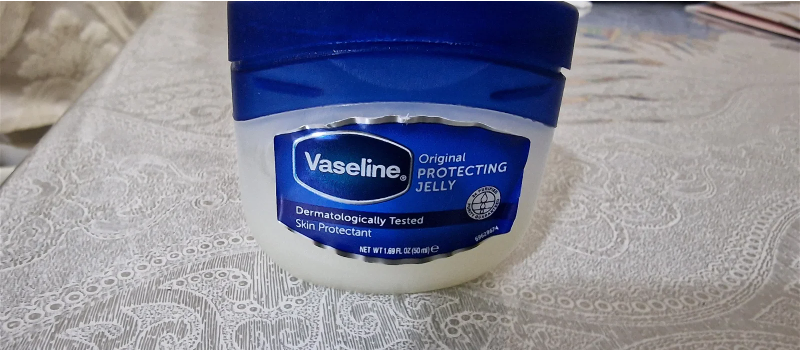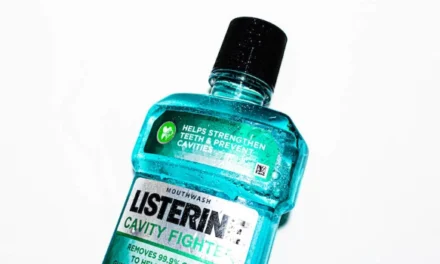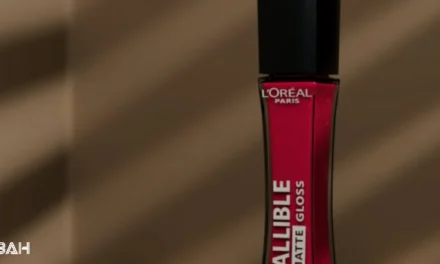Vaseline petroleum jelly is an iconic product used by millions globally for lip care, skin care, and protecting against dryness. It’s thick, creamy texture softens roughness and locks in moisture beautifully. However, for Muslim consumers who strictly adhere to religious dietary guidelines around permissible ingredients, a key question arises: is Vaseline halal?
Determining if an internationally recognized brand like Vaseline follows Islamic standards for production is important for informed purchasing choices.
This article will analyze the origins and contents of Vaseline, examine what meeting halal requirements entails, assess current perspectives from religious authorities, and provide applicable advice for Muslim communities.
Tracing the History of Vaseline Petroleum Jelly
To understand modern-day Vaseline, we must go back to where the popular product began.
Vaseline was invented in 1870 by young chemist Robert Chesebrough after an intriguing discovery. Chesebrough had heard of oil workers smearing residue from oil rigs on injuries, noting its ability to accelerate healing. Fascinated by petroleum’s therapeutic potential, he experimented with the substance, ultimately purifying it into a stable gel-like form.
Chesebrough patented his refined petroleum jelly substance as Vaseline, pioneering an entirely new skincare category. Due to Vaseline’s versatility in locking moisture and protecting against elements, business boomed rapidly. By the early 1900s, Chesebrough’s Vaseline Petroleum Jelly Company had expanded distribution across America and internationally.
Today, the Vaseline brand is owned by Unilever – one of the largest consumer goods conglomerates worldwide. While specific production details are proprietary information, current Vaseline continues to be manufactured from petroleum jelly as its core ingredient. Additional components like fragrances, vitamins, herbal extracts are added to formulate comprehensive skincare solutions.
Popular varieties have expanded widely from the original thick jelly. Top sellers around the world now include:
- Vaseline Petroleum Jelly – Flagship product for dry skin relief
- Vaseline Intensive Care Lotions – Rich, non-greasy moisturizing options
- Vaseline Clinical Care – Specialized wound healing and skin health lines
- Vaseline Lip Therapies – Protecting balms for chapped, tender lips
With such ubiquitous name recognition and availability around the globe, Muslim consumers want confidence whether they may use Vaseline safely by religious standards.
What Does Halal Certification Entail?
Halal regulations serve to uphold religiously permissible consumption and use of various products for Muslim communities. The Arabic word “halal” translates to “permissible” or “lawful”.
To meet halal standards, products must not contain any ingredients or traces of substances considered forbidden according to Islamic law:
- No Alcohol – Ethanol and other related intoxicants
- No Pork By-Products – Primary restriction regarding food and medicines
- No Blood or Carrion – Forbidden animal remnants
- No Contamination – Processing equipment cannot mix non-halal substances
Additionally, great care must be taken regarding the sourcing of permissible animal products:
- Slaughtering – Any meat or living animal derivatives like collagen or bone char must come from properly slaughtered animals reading Islamic scripture at time of slaughter
- Genetic Origin – No pigs or carnivorous animals
Overseeing adherence to these regulations is the central purpose of halal certification organizations operating across the world.
Groups like the Islamic Food and Nutrition Council of America (IFNCA) perform facility audits and product inspections to verify ingredients, processing methods, cleaning procedures, and more all satisfy compliance.
Receiving certified halal status signifies a product has successfully passed these strict guidelines to meet religious approval for appropriate use.
Does Vaseline Have Formal Halal Certification Currently?
After investigating, Vaseline does not appear to have overarching halal certification from an accredited authority organization. No seal from endorsement groups like IFNCA is displayed.
Exact reasons why Vaseline lacks certification are unclear, but could potentially include:
-
Insufficient Priority – As an internationally distributed mainstream brand, seeking formal halal designation may currently be lower priority for the company compared to other initiatives. Widely satisfying all Islamic technical requirements could be seen as an involved process for limited marketing reward.
-
Complex Sourcing Logistics – Vaseline relies on materials from broad supply chains that may be challenging to fully audit and control. Keeping global pipelines halal-compliant could require significant coordination effort.
-
Formulation Trade Secrets – Like most major consumer product brands, Unilever likely considers full disclosure of some Vaseline formula details competitively sensitive. This could present obstacles during rigorous inspection needed for certification.
The apparent absence of halal compliance approval leaves potential questions for observant Muslim consumers. Diving deeper into specific composition and production aspects is necessary next.
Key Ingredients & Halal Considerations
The main Vaseline components we need to examine further in context of Islamic standards are petroleum jelly and supplementary additives like glycerin, botanical oils, fragrances, etc.
Is Petroleum Jelly By Nature Halal?
Petrolatum, more commonly known as petroleum jelly, represents the foundational constituent of all Vaseline products. It is composed of a purified mixture of semi-solid hydrocarbons derived from the petrochemical industry.
In regards to halal compliance, petroleum jelly itself raises little objections:
- Not Animal-Derived – Petrolatum comes from mineral oil sources, not living creatures. No animal slaughtering or carcass processing factors.
- Non-Alcohol Purification – Manufacturing standards dictate no alcohol used during filtration and refining steps.
- Generally Recognized Halal – No definitive rulings identify petroleum jelly as an innately prohibited substance.
However, some Muslim authorities point out use of certain processing aids could jeopardize halal status. For example, animal bone char filtration material during refinement may introduce contamination. Thus, petitions for producers to specify petrolatum purification methodology have emerged.
But in essence, petroleum jelly as a core substance remains widely accepted among Islamic scholars. Classifications from accredited halal organizations like Indonesia’s Majelis Ulama Indonesis (MUI) confirm petrolatum is considered intrinsically halal compliant.
Do Any Supplemental Vaseline Ingredients Raise Halal Concerns?
While petroleum jelly forms the foundational emollient, Vaseline products incorporate various other ingredients for performance enhancement, aesthetics, marketing, etc.
Some supplemental compounds potentially prompt halal uncertainties, including:
● Glycerin – Glycerin is a common moisturizing agent. Chemically it acts as a humectant, attracting water. Composition can derive from vegetable fats or animal tallow. Muslim authorities demand halal-certified glycerin from plant sources, not animal. Unclear whether Unilever’s glycerin pipelines satisfy this currently.
● Botanical Oils – Numerous Vaseline lotions feature botanical oils like cocoa butter, aloe vera, olive, or avocado oil for skin-nourishing effects. Must confirm agriculture standards and extraction methods uphold halal integrity. Cannot utilize alcohol or other forbidden substances.
● Lanolin – Some intensive care Vaseline creams list lanolin, a wax from sheep’s wool. Potential exists for incomplete purification removing animal fat remnants.
● Fragrance – Artificial and natural perfumes are common but must satisfy non-alcohol-based processing criteria. Traces of animal musk glands or excretions may appear in certain specialty fragrances as well.
Without halal certification or detailed public disclosure, Vaseline’s procurement and handling protocols for these ingredients remain vague. Are glycerin sources verified non-animal? Do botanical partners meet stewardship standards aligning with Islamic values? What processing aids might play obscured roles? Questions linger.
Are Any Vaseline Products Formally Halal Certified?
Presently there appear to be no universal halal declarations or endorsements encompassing all Vaseline product lines.
Certain Islamic authority groups have conveyed general assurances about using standard Vaseline 100% pure petroleum jelly. Based on petrolatum’s widely accepted status and no other active ingredients, this original formula steers clear of dubious substances from their perspective.
However, oversight organizations reiterate that supplemental components in ancillary cared-focused offerings under the Vaseline brand may still introduce uncertainty without further audits. These gray areas for products featuring additional elements reinforce why blanket halal confirmation does not yet exist currently.
Fatwas & Perspectives from Leading Islamic Voices
In lieu of formal halal certification, many Muslim consumers look toward guidance from trusted Islamic theological voices for direction navigating Vaseline’s unclear status.
Several prominent perspectives have emerged, centered around appraising Vaseline petroleum jelly specifically since supplementary product formulas vary enormously:
Islamic Organization of North America (IONA)
“Materials like petroleum jelly which are derived from minerals and plants do not have major restrictions. Their use is permitted unless during processing they get contaminated with clearly prohibited items.”
Islamic Council of Victoria (ICV)
“It is permissible to use petroleum jelly (Vaseline) as the basic material is oil that has been refined and it is not considered impure.”
Dr. Yusuf Al-Qaradawi – Prominent Islamic Scholar & Chairman of International Union of Muslim Scholars
“All kinds of personal care products, such as deodorant, soap, and toothpaste that contain alcohol or pork derivatives, should be avoided unless verified to be halal. However there is no clear prohibition regarding petroleum-based products like Vaseline and mineral oils if they are not used internally.”
These influential perspectives converge around declaring standard Vaseline petroleum jelly free of impermissible ingredients given purely mineral oil/petrolatum composition. However, halal appropriateness generalizations do not universally apply to ancillary offerings potential containing supplementary elements.
Practical Ramifications for Muslim Consumers
When appraising available opinions and evidence regarding Vaseline and halal compliance, key implications emerge for Muslim consumers:
-
100% Pure Petroleum Jelly – Flagship Vaseline product centered solely around petroleum jelly carries broadest assurances of permissibility from Islamic scholars, assuming processing methodology upholds standards. Minimal halal-related objections.
-
Formula Variations – Ancillary Vaseline lines featuring extra ingredients like glycerin, botanical oils, alcohols etc. introduce potential uncertanties without further scrutiny and auditing. Individual assessment required.
-
No Universal Halal Certification – Vaseline brand as a whole presently does not encompass formal halal designation. Select products may prove permissible but overall ambiguity remains.
-
Alternative Options – For utmost confidence, consumers can seek out halal-approved petroleum jelly alternatives, albeit likely lesser known brands. Comparing product literature can be useful.
The Path Forwards – Final Recommendations
When synthesizing available information regarding Vaseline’s halal status for Muslim consumers, the evidence upholds certain products likely meet acceptable guidelines while others stay more opaque.
My proposal for Muslim communities moving forward involves:
1. Recognize core Vaseline petroleum jelly (not formulations with added ingredients) as sufficiently permissible pending manufacturing process checks – Given broad consensus about petrolatum’s intrinsic acceptability along with no definitive rulings actively prohibiting conventional petroleum jelly, feel empowered to continue utilizing plain Vaseline jelly products unless evidence of contamination violations emerge.
2. Exercise discretion around ancillary Vaseline offerings – Without comprehensive supply chain details, view supplementary ingredients featured in other product lines more cautiously. Check formulas individually and contact Unilever with sourcing inquiries if assurance desired before use.
3. Encourage Vaseline to pursue formal halal certification to resolve ambiguity – Urge parent company Unilever to apply for accredited halal approval through respected certification groups to satisfy entire Muslim consumer base. Verified designation lifts burden off customers having to navigate uncertainty independently.
Frequently Asked Questions – Is Vaseline Halal?
Vaseline products, including lotions, lip balms, and Vaseline Intensive Care, are generally considered halal as they do not contain ingredients that are haram according to Islamic dietary laws.
Are Vaseline lip products halal?
Yes, Vaseline lip balms and lip therapies are halal as they do not contain any haram ingredients and are safe for use.
What is Vaseline Intensive Care Advanced Strength non-greasy lotion?
Vaseline Intensive Care Advanced Strength non-greasy lotion is a moisturizing product designed to deeply hydrate and nourish dry skin without leaving a greasy residue.
How is Vaseline jelly made?
Vaseline® jelly is made from a mixture of mineral oils and waxes, creating a semi-solid jelly that is commonly used in skincare products for its moisturizing properties.
Can Vaseline be used for skin care?
Yes, Vaseline products, such as Vaseline Intensive Care lotions and Vaseline Healing Jelly, are commonly used for skin care to treat dry skin, chapped lips, and conditions like eczema.
Is Vaseline Aloe Vera lotion halal?
Vaseline Aloe Vera lotion is considered halal as it does not contain any haram ingredients and is suitable for use by those seeking halal cosmetic products.
What are the key ingredients in Vaseline products?
The key ingredients in Vaseline products may include mineral oil, lanolin alcohol, stearic acid, and aloe vera, among others. The complete list of ingredients can be found on the product packaging.
Is Vaseline suitable for sensitive skin?
Vaseline products, especially those labeled for sensitive skin, are generally safe to use for individuals with sensitive skin as they are formulated to be gentle and moisturizing.
How can I determine if a Vaseline product is halal?
To determine if a Vaseline product is halal, you can check the product’s ingredients list to ensure it does not contain any haram ingredients. Additionally, some products may be labeled as halal certified.
Are Vaseline cosmetic products considered halal?
Yes, Vaseline cosmetic products, including lotions, lip balms, and healing jellies, are generally considered halal and suitable for use by individuals seeking halal and vegan-friendly options.





